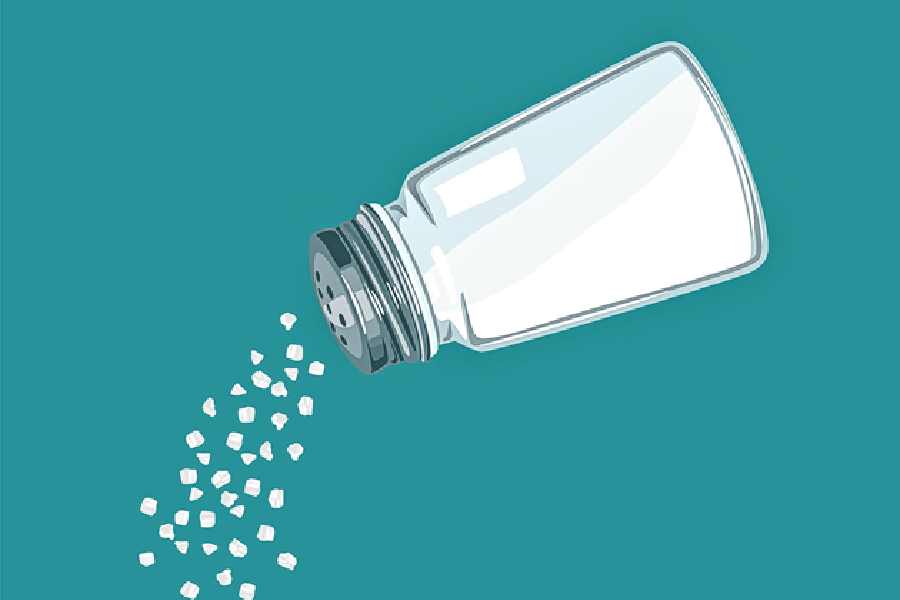Salt (sodium chloride) is necessary for life. From ancient times, salt was added to our food for taste and also as a binder and stabiliser. It helps preserve food in the absence of refrigeration. Bacteria cannot survive in a high-salt environment.
In the olden days, it was a precious commodity and only the wealthy could afford salt. Even the word “salary” comes from the word salt. Now, however, salt is cheap and used all over the world.
Today, salt has got a bad reputation. People try to avoid it as they feel it aggravates diseases such as hypertension, heart, liver or kidney failure. The body’s cells need a certain amount of sodium to transmit signals, conduct nerve impulses, contract and relax muscles, and regulate the proper fluid balance into and out of cells.
Salt is excreted from the body via urine and sweat. Each litre of sweat contains three grams of salt. On hot and humid days, and after exercise, depletion of salt is responsible for the feeling of fatigue. Lack of salt aggravates the symptoms of heat stroke. We need to replace this lost salt for the efficient functioning of the body.
Kidneys filter the blood and keep sodium levels in the body normal. If too much salt is eaten, the kidneys are unable to get rid of it. The excess salt remains in the body. Water is retained along with the salt. This can cause swelling and aggravates cardiac and kidney failure as well as hypertension.
Salt is of many kinds. There is the naturally-mined salt, the Himalayan pink salt and the salt produced by the evaporation of seawater. All these types of salt contain different trace elements and minerals depending on their source.
The Government of India has made it mandatory to iodise salt. Edible salt is iodised by spraying it with a potassium iodide solution; 57 grams of potassium iodate is used for one tonne of salt. This is needed, as most of the country is deficient in iodine.
Iodine is essential for production of the thyroid hormone and proper functioning of the thyroid gland. The thyroid hormone helps in growth, brain function, weight control, digestion and in controlling the heart rate. Deficiency of iodine can also cause a swelling called goitre to appear in the front of the neck. Iodine is also essential during pregnancy, lactation and for the proper growth of the baby. Women who are deficient in iodine may produce a mentally challenged child with hypothyroidism.
A healthy amount of salt for a person in a day is half a teaspoon or 2.5gm. So, if you have a household with four people, you should use 10gm or two teaspoons of salt to cook food for the entire day. Remember, extra salt is present in things such as pickles, sauces, chips, pappads and ready-to-cook foods. This has to be accounted for when calculating the salt intake.
People who have medical problems such as hypertension or heart disease should have even less salt. For them, the amount of salt used should be only 1.5gm or a quarter of a teaspoon per day.
Some people try to get around this recommendation for salt restriction by buying the widely-advertised low-sodium salt. It gives the same taste but, since it contains less sodium, it is considered healthier. The sodium in low-sodium salt is actually replaced by potassium, calcium or magnesium. Unfortunately, too much of magnesium or potassium is also harmful for the body. It can slow the heart rate and cause cardiac arrhythmias and even kidney failure.
Stay healthy. Remember, too much of anything is not good for us, and this goes for salt too.
The writer has a family practice at Vellore and is the author of Staying Healthy in Modern India. If you have any questions on health issues please write to yourhealthgm@yahoo.co.in











